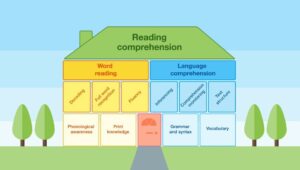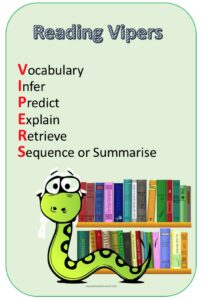English – Reading
Aims
At Staveley CE Primary School, we want to foster a deep love for reading in our pupils, developing the habit of reading widely and often, for both pleasure and knowledge. Pupils will develop strong comprehension skills, acquire a wide vocabulary and an understanding of the grammatical and linguistic conventions for reading. Our carefully planned and comprehensive reading curriculum designed to fulfil the statutory requirements of the Early Years Foundation Stage and the National Curriculum encompasses a wide range of high quality texts and genres enabling pupils to acquire knowledge and to build on what they already know and to develop an enjoyment of literature, feeding pupils’ imaginations and opening up a treasure-house of wonder and joy for curious young minds. Pupils will become confident and fluent readers in any subject who are well-prepared for the next stage of their education.
How is reading taught?
The teaching of reading at Staveley CE Primary School consists of two very important elements – word reading and reading comprehension. Both elements are interdependent on each other but need discrete teaching.

Phonics
During the Early Years and Key Stage 1, pupils take part in daily phonics sessions following the Read, Write, Inc. programme. Starting in the very first week of Reception, pupils quickly learn phoneme-grapheme correspondences, how to decode (Fred Talk) words and how to speedily recognise familiar words. Pupils are taught in small differentiated groups by highly trained and experienced staff – we call these our Fred Time sessions, named after the little frog character in the programme. Each group learns and practices speed sounds and words and reads an appropriate phonetically decodable text, making sure all of the sounds in the text are previously known ensuring high engagement and success. Read, Write, Inc. has a clear progression of learning, a consistent structure and decodable books for every child. Half termly Read, Write, Inc. assessments identify swift progress through the programme and quickly identify any children in need of a little support to keep up or at risk of falling behind to ensure appropriate 1-1 tuition can be given – we call this Fast Track Tutoring. By the middle of Year 2 pupils will have finished the Read, Write, Inc. programme unless they have been identified as still needing phonics tuition, which for some children may carry on into Key Stage 2.
What is Phonics? A Parent Video – Understanding Phonics
What is Read, Write Inc Phonics? A Parent Video – What is RWI Phonics?
For more information and helpful videos – RWI Parents and Carers Info
Rich and varied reading comprehension
Throughout their learning journey at Staveley CE Primary School, pupils will be taught comprehension skills through reading and engaging with a wide variety of high quality texts including fiction, non-fiction and poetry across different genres and time periods. Carefully designed whole-class reading activities will help pupils develop fluency and the act of understanding and interpreting what they have read using the VIPERS (vocabulary, inference, predict, explain, retrieve and sequence/summarise). A range of teaching strategies including explicit instruction, modelling, repetition and guided oral reading help to develop fluency.

Reading is integrated into other subjects, allowing children to engage with texts in a meaningful context and to make connections across their learning. Staveley CE Primary School celebrates diverse literature and ensures that pupils have access to texts that reflect their own experiences and those of others.
Here is our Reading Progression document which illustrates what a child in each year group would be expected to cover for each of the areas of the Reading Curriculum.
Reading for pleasure
We want the children to develop a love of reading and make sure that opportunities for reading for pleasure are embedded across the curriculum, with time for independent reading and chance to share and discuss books with peers being regularly promoted. Story time is one of our favourite parts of the day with every class taking time before lunch to hear the teacher read aloud a class novel or favourite picture book, chosen from a selection of high quality texts, purely for pleasure and enjoyment. Each classroom is well-stocked with a diverse range of age-appropriate books and each year we take part in initiatives to instil a love of reading in pupils. Upper Key Stage 2 pupils look forward to the Spellbinding initiative and Key Stage 1 enjoy the KS1 Reading Challenge each year, where they get to read a selection of new quality texts and vote on their favourite. This is always a highly anticipated part of the school calendar. Pupils enjoy termly visits from the Library Van, choosing new books for each class to take home and Topic Boxes are delivered from the Library Service full of cross-curricular texts. World Book Day is always a highlight of every year and during our Family Time sessions, our older pupils take time to share and read stories to our younger children.
Books for Topics have useful 50 Recommended Read Checklists for each year group (these have been sent home but you can download them below)
Home-School Collaboration
Staveley CE Primary School actively promotes reading at home and provides parents with guidance on how to support their child’s reading development. Each week, all pupils in the EYFS and Key Stage 1 take home a phonetically decodable book carefully matched to the letters and sounds they have been learning in their Read, Write, Inc. sessions. Pupils also choose another book to encourage shared reading with an adult at home and a library book for pleasure and enjoyment. Key Stage 2 children take home an age-appropriate text selected from the wide variety in classrooms or the Library Van.
What are the outcomes?
Children at Staveley CE Primary School develop a genuine love of reading and books early on in their learning journey through a high-quality curriculum, effective teaching and strong partnerships between school and parents. Children enjoy and are able to use their reading skills for pleasure and to help acquire new knowledge across all areas of the curriculum. Half termly Read, Write, Inc. assessments quickly identify pupils at risk of falling behind with phonics and reading and are given 1-1 tutoring to keep up and termly PIRA reading comprehension tests measure progress and identify children needing reading interventions across the whole school. This approach leads to every pupil making progress and reaching their full potential, preparing them for future success in their education and beyond.